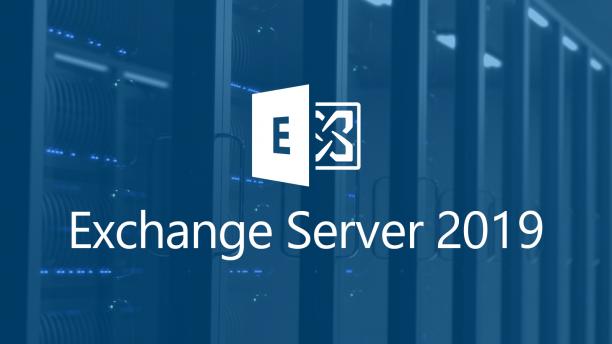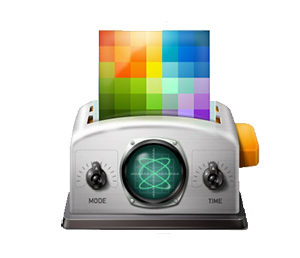Most Commented
Exchange Server & Exchange Online course with hands on demos




Description material

Published 8/2023
Created by John Christopher
MP4 | Video: h264, 1280x720 | Audio: AAC, 44.1 KHz, 2 Ch
Genre: eLearning | Language: English | Duration: 103 Lectures ( 14h 17m ) | Size: 7 GB
Learn how to expertly administer Microsoft Exchange Server / Online with lecture and hands on simulations available 24/7
What you'll learn
Learn the concepts and perform hands on activities needed to master Microsoft Exchange Server and Exchange Online
Gain a tremendous amount of knowledge involving Microsoft Exchange Server and Exchange Online
Learn using hands on simulations on how Microsoft Exchange Server and Exchange Online
Learn by doing and not just PowerPoint slides!
Requirements
Willingness to put in the time and practice the steps shown in the course!
You'll need access to a copy of Exchange Server in order to practice with it.
Description
We really hope you'll agree, this training is way more than the average course on Udemy!
Have access to the following
Training from an instructor of over 20 years who has trained thousands of people and also a Microsoft Certified Trainer
Lecture that explains the concepts in an easy to learn method for someone that is just starting out with this material
Instructor led hands on and simulations to practice that can be followed even if you have little to no experience
TOPICS COVERED INCLUDING HANDS ON LECTURE AND PRACTICE TUTORIALS
Introduction
Welcome to the course
Understanding the Microsoft Environment
Foundations of Active Directory Domains
Foundations of RAS, DMZ, and Virtualization
Foundations of the Microsoft Cloud Services
Questions for John Christopher
DO NOT SKIP: Doing assignments (simulations) in the course
Managing messaging infrastructure lifecycle
Introduction to hands on with Exchange Server
Understanding the Exchange Server installation
Understanding Active Directory with Exchange On-Premise
Understanding Exchange On-Premise with Exchange Online
Exchange Server 2019 Licensing Options
Deploying Microsoft Exchange Server On-Premise
Using the Exchange Administration Center (EAC)
(Part 1)Understanding PowerShell with Exchange Management Shell (EMS)
(Part 2)Understanding PowerShell with Exchange Management Shell (EMS)
Setting up for Exchange Online
The first thing to know about Microsoft cloud services
Creating a free Microsoft 365 account to support Exchange Online
Introduction to using Exchange Online
Managing Databases in Microsoft Exchange
Working with Microsoft Exchange Databases
Considerations for Databases and Logs
Using iSCSI for Accommodating Database Storage
Implementing iSCSI for Mailbox Database Storage
Creating Mailbox Databases
Configuring Mailbox Databases
Troubleshooting Mailbox Databases
Exchange Server Recipient Management
Understanding Recipients
Creating Mailboxes
Managing Shared Mailboxes
Creating Resource Mailboxes
Creating Multiple Mailboxes Using Comma Separated Value (CSV)
Managing Mailbox Permissions
Creating and managing Security and Distribution Groups
Managing Archive Mailboxes
Configuring Email Address Policies
Exchange Online Recipient Management
Configuring user mailboxes
Creating resource mailboxes in Exchange Online
Manage shared mailboxes
Working with contacts and mail users
Administering groups, distribution lists, and more
Mailbox permissions and delegation
Administering mailbox mail flow settings
Managing Mobile Devices
Configuring Mobile Device Mailbox Policies
Managing Mobile Device Access
Managing Database Availability Groups (DAGs)
Understanding and Planning DAGs and Settings
Creating a DAG
Managing your DAG members and its health
Exchange Server Address Book Management
Understanding the Global Address List (GAL)
Managing the Global Address List (GAL)
Understanding the Offline Address Book (OAB)
Working with the Offline Address Books (OAB)
Exchange Online Address Book Management
Working with the global address list in Exchange Online (GAL)
Offline address books (OABs) with Exchange Online
Address book policies in Exchange Online
Managing organization relationships and individual sharing
Managing Outlook on the web policies
Managing Public Folders
Understanding Public Folders
Creating Public Folders in On-Premise Exchange
Planning a Public Folder Migration to Microsoft 365
Managing and Implementing Client Access
Planning Namespaces for On-Premise Exchange
Configuring Virtual Directories and URLs
Configuring Client Access Policy Rules
Autodiscover in Exchange
Understanding Internal and External Certificates
Installing a CA for Exchange Certificates
Managing Disaster Recovery
Planning Backup and Recovery
Implementing and preforming a Backup
Performing an Exchange Restoration
Working with Exchange hybrid settings and migration
Visualizing Hybrid Exchange Configurations
Exchange Hybrid Migrations
Hybrid Migration Types
Overview of the Hybrid Configuration wizard
Managing Mail Flow in Exchange Server and Exchange Online
Understanding Connectors
Mail Flow Transport Rules in On-Premise Exchange
Accepted Domains with Exchange On-Premise
Creating Send and Receive Connectors with Exchange Server
Exchange Online accepted and remote domain management
Exchange Online Connector Configuration
Using mail flow rules in Exchange Online
Concepts of Exchange Online Protection (EOP)
Understanding Email authentication, SPF, DKIM, and DMARC
Using email authentication, including SPF, DKIM, and DMARC
Mail flow troubleshooting for Exchange Online
Alert policies in Exchange Online
Using message trace in Exchange Online
How to analyze message headers
Non-delivery reports (NDRs) in Exchange Online
Using Microsoft Remote Connectivity Analyzer for troubleshooting
Managing Compliance for Exchange Online
Working with retention using Messaging Records Management (MRM)
Managing retention policies
Specific mailbox folder retention
Archive mailbox configuration
Inactive mailboxes
Working with audit logs
Journal rules in Exchange Online
Overview of content search and eDiscovery
Performing a content search
Standard eDiscovery cases
Understanding Microsoft 365 Defender for Office 365
Concepts of Microsoft 365 Defender for Office 365
Information about these next videos
Anti-phishing policies
Anti-spam policies
Anti-malware policies
Safe Attachments
Safe Links
Quarantine policies
Who this course is for
IT people interested in learning a tremendous amount about Microsoft Exchange Server and Exchange Online!
Buy Premium Account From My Download Links & Get Fastest Speed.
https://1dl.net/lua64mkok411/Exchange_Server___Exchange_Online_course_with_hands_on_demos.part1.rar
https://1dl.net/6ygoul4p60n1/Exchange_Server___Exchange_Online_course_with_hands_on_demos.part2.rar
https://1dl.net/lseg7h163x5u/Exchange_Server___Exchange_Online_course_with_hands_on_demos.part3.rar
https://1dl.net/htjwaejqnrye/Exchange_Server___Exchange_Online_course_with_hands_on_demos.part4.rar
https://1dl.net/rvzue3a7s1fb/Exchange_Server___Exchange_Online_course_with_hands_on_demos.part5.rar
https://1dl.net/z6f7nmr6xnhz/Exchange_Server___Exchange_Online_course_with_hands_on_demos.part6.rar
https://1dl.net/wieaxjpmlrr4/Exchange_Server___Exchange_Online_course_with_hands_on_demos.part7.rar
https://1dl.net/ljhnm5l1082v/Exchange_Server___Exchange_Online_course_with_hands_on_demos.part8.rar
https://nitroflare.com/view/0EFA6294A56299B/Exchange_Server_%26_Exchange_Online_course_with_hands_on_demos.part1.rar
https://nitroflare.com/view/A34D7DFDD88D9CE/Exchange_Server_%26_Exchange_Online_course_with_hands_on_demos.part2.rar
https://nitroflare.com/view/C794B4D224F25A8/Exchange_Server_%26_Exchange_Online_course_with_hands_on_demos.part3.rar
https://nitroflare.com/view/CC868651FC92A1A/Exchange_Server_%26_Exchange_Online_course_with_hands_on_demos.part4.rar
https://nitroflare.com/view/F0CB22386F66331/Exchange_Server_%26_Exchange_Online_course_with_hands_on_demos.part5.rar
https://nitroflare.com/view/DB24CDAC9E3738A/Exchange_Server_%26_Exchange_Online_course_with_hands_on_demos.part6.rar
https://nitroflare.com/view/D8491022E6320FA/Exchange_Server_%26_Exchange_Online_course_with_hands_on_demos.part7.rar
https://nitroflare.com/view/82BCBB33CCD175D/Exchange_Server_%26_Exchange_Online_course_with_hands_on_demos.part8.rar
https://rapidgator.net/file/2755a79f70f7a3130a9dd0af0cc383fe/Exchange_Server_&_Exchange_Online_course_with_hands_on_demos.part1.rar.html
https://rapidgator.net/file/34b79ff9315718834b9a6d9cc21b1c70/Exchange_Server_&_Exchange_Online_course_with_hands_on_demos.part2.rar.html
https://rapidgator.net/file/4b90da33c4eb3cbda05bc6b838dd1af2/Exchange_Server_&_Exchange_Online_course_with_hands_on_demos.part3.rar.html
https://rapidgator.net/file/1493a100686e595005866a9dfaa45e31/Exchange_Server_&_Exchange_Online_course_with_hands_on_demos.part4.rar.html
https://rapidgator.net/file/26f4d05b47db1afd6900b52975b45f0a/Exchange_Server_&_Exchange_Online_course_with_hands_on_demos.part5.rar.html
https://rapidgator.net/file/772e657a88d0d0e76537b541a6b611d7/Exchange_Server_&_Exchange_Online_course_with_hands_on_demos.part6.rar.html
https://rapidgator.net/file/1b328569290f57e36bbc6e2e54c82820/Exchange_Server_&_Exchange_Online_course_with_hands_on_demos.part7.rar.html
https://rapidgator.net/file/abef036dbe4da1f0b2512cb2ec4457cf/Exchange_Server_&_Exchange_Online_course_with_hands_on_demos.part8.rar.html
Join to our telegram Group
Information
Users of Guests are not allowed to comment this publication.
Users of Guests are not allowed to comment this publication.
Choose Site Language
Recommended news
Commented



![eM Client Pro 9.2.1735 Multilingual [Updated]](https://pikky.net/medium/wXgc.png)






![Movavi Video Editor 24.0.2.0 Multilingual [ Updated]](https://pikky.net/medium/qhrc.png)

